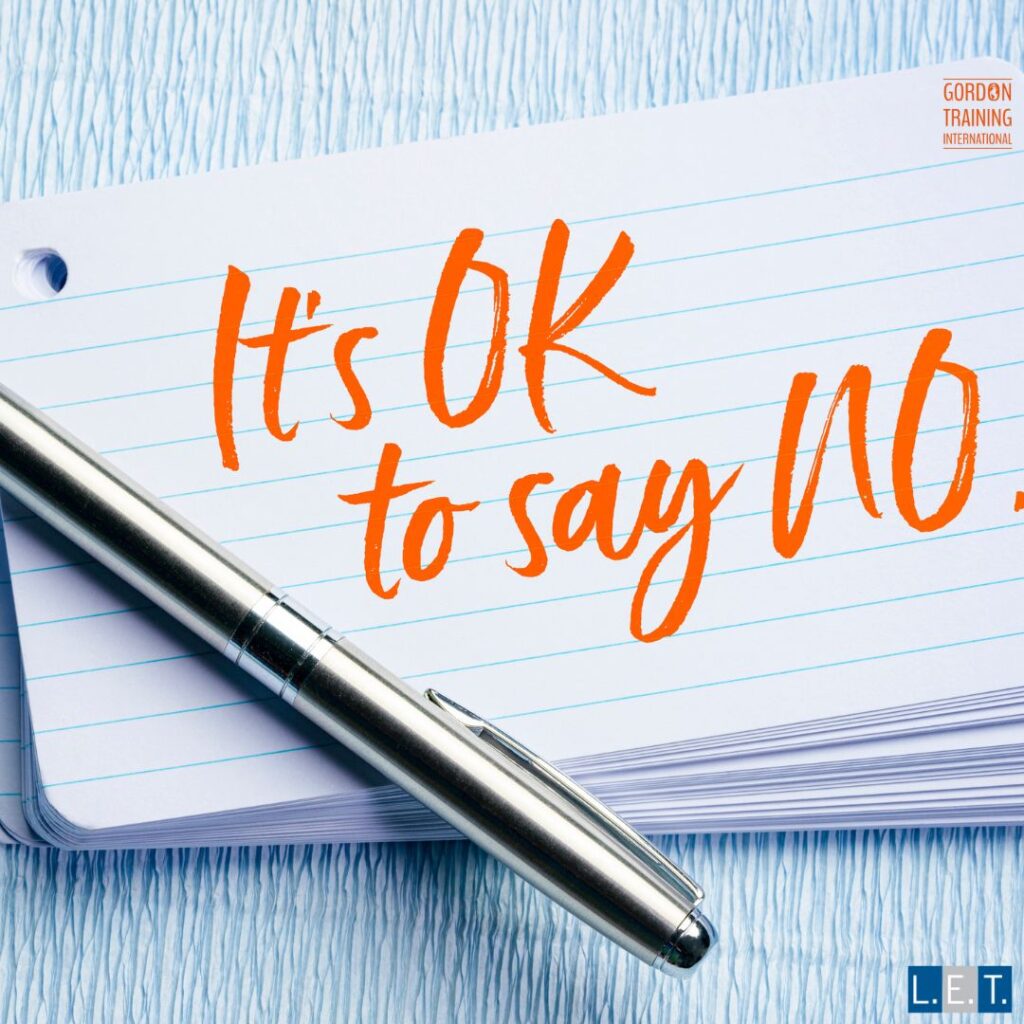How many times have you said “yes” to things you didn’t really want to do? Saying “no” can be very difficult, especially when we have been used to saying “yes”.
When we do say “yes” instead of an honest “no”, we often feel like we let ourselves down and, at the same time, resentful of the person who asked us.
There are lots of reasons why we say “yes” to unacceptable requests.
Here are some of them:
- Desire to please. “What will she think of me?” “I know it would make them happy.”
- Fear of hurting someone. “I don’t want to disappoint her.” “I’m afraid I’ll hurt his feelings if I don’t go.”
- Guilt. “I’d feel so selfish.” “How could I turn them down?”
- Surprise. “Well, I guess I could do it.” “I don’t know… well, O.K.”
- Deference to authority. “She’s the boss.” “Yes, sir!”
- Reciprocation. “I may need the same sometime.” “She’d do it for me.”
- Duty. “I ought to..” “I should…” “I owe it to them.”
- Need for power. “If I say ‘no’, they’ll think I can’t handle it.” “Now he’ll owe me one.”
We have a need to see ourselves and have others see us as a “good person”, one who cares about others, who is willing to help out, to make a contribution. At the same time, we want to take care of ourselves and our important needs and wants. When we agree to do things we really don’t want to do, we pay a very high price—increased stress, less energy, resentment, lower self-esteem. On the other hand, when we say “yes” and we really mean it, we give our full effort, energy, motivation and creativity.
The key here is finding a balance between meeting your own needs and helping other people meet theirs. Ask yourself: “What are my needs?” “How much of my time, energy and resources do I need to meet them?” “What do I genuinely want to do for others?” “How much of my time do I want to give to helping others meet their needs?”
Each person will find different answers to these questions. The important thing is to find the balance that works for you.

